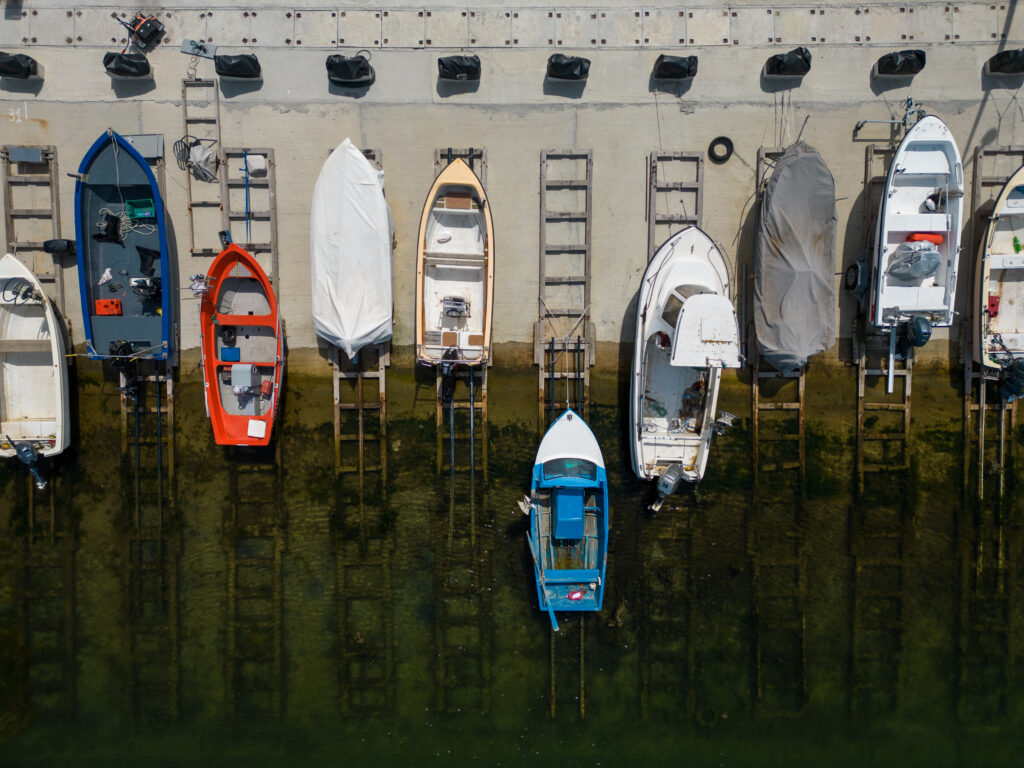For RV and boat owners, the end of summer doesn’t just mark the close of the warm weather season—it’s also the beginning of the storage puzzle. Whether it’s a lack of space at home or the need for more secure storage, finding the right place to store your recreational vehicles and boats can get stressful.
In this comprehensive guide, we’ll steer through the various aspects of RV and boat storage to ensure that your investments are safe and sound until it’s time to hit the open road or waves again.
Why Storage Matters for Your RV or Boat
RVs and boats are significant investments that require proper care and maintenance to ensure their longevity. Storing your vehicle or boat in the right place can make a big difference in protecting them from harsh weather elements, theft, and damage.
Weather Protection
Exposure to extreme weather conditions like snow, rain, and UV rays can wreak havoc on RVs and boats. Constant exposure to moisture can cause mold and mildew to grow, which leads to costly repairs. Similarly, intense sun rays can fade the paint and damage the interior of your vehicle or boat.
Security
RVs and boats are valuable assets that attract thieves. Storing them in a secure facility with surveillance cameras, fenced perimeters, and security personnel can deter theft attempts.
Convenience
Storing your RV or boat at a facility near your home can make it easier for you to access and use it whenever needed. This is especially helpful if you plan on using your vehicle or boat frequently during the off-season.
RV Storage: Understanding Your Needs
The storage needs of RV owners can vary widely depending on the type and size of their vehicle. From compact camper vans to spacious motorhomes, each requires specific attention.
Understanding your RV’s particular dimensions, including length, width, and height, is crucial when searching for storage facilities. It’s also essential to consider whether your RV has any additional features, such as slide-outs, which would require extra space.
Find the Dimensions and Specifications of Your RV
Start by gathering the technical specifications of your RV, and don’t forget to measure any areas that extend when your vehicle is in use, such as slide-outs and awnings. Remember, storage facilities will need these measurements to ensure a proper fit and to allow safe and secure maneuvering on their premises.
Determine the Unique Storage Needs Based on RV Type
Class A motorhomes, Class B camper vans, Class C RVs, and travel trailers all come with their unique set of storage challenges. For instance, larger Class A RVs require not only space but also need to be able to fit under indoor facilities’ doors and between indoor storage aisles.
On the other hand, travel trailers may require additional hitch space in your chosen storage location. Understanding these needs will lead to better long-term storage solutions.
Evaluate Environmental Conditions and Climate Effects on RV Storage
Extreme weather can have a detrimental impact on RVs. Snow, hail, and high winds can cause damage, while extended periods of heat and sun can cause upholstery and tires to degrade. When selecting a storage location, consider climate-appropriate options, such as a climate-controlled facility, to protect your RV from the elements.
Boat Storage: What You Should Consider
Boats, like RVs, come in a variety of shapes and sizes and thus require different storage considerations. Sailboats may have mast height issues to account for, while powerboats may be trailered more easily. Understanding your boat’s size, hull type, and specific features is the first step to ensuring secure storage.
Find the Size, Dimensions, and Hull Type of Your Boat
Knowing the length, width, and height of your boat is critical when seeking out storage options. Additionally, certain hull types, such as catamarans or deep-keel sailboats, may require special hoisting and storage techniques. Make sure you communicate these details clearly with potential storage facilities.
Identify Specific Storage Requirements Based on Boat Type
Whether you have a pontoon, sailboat, fishing boat, or yacht, each type comes with its own set of needs. The addition of accessories like boat covers or biminis can add to the storage requirements. Powerboats may require specific service needs prior to long-term storage, such as fuel stabilizing, to avoid any issues upon removal.
Consider Environmental Factors for Boat Storage
Boats are particularly susceptible to environmental elements due to their constant exposure to water and weather. The salinity and humidity of the air, as well as the potential for mold and mildew, can be of concern. Opting for a facility that minimizes these effects is crucial in the prevention of deterioration and damage.
Types of RV and Boat Storage Facilities
Once you’ve gauged the specific needs of your RV or boat, it’s time to explore the various types of storage facilities available. Each offers a range of amenities and levels of protection, and choosing the right one is key to keeping your investment in top condition.
RV Storage Options
Indoor storage for RVs is often the most protective option. Ensuring complete cover from the elements, indoor facilities provide the highest level of security and often come with additional amenities.
Enclosed Storage Units
These are individual lockable compartments, and they offer the highest level of security and insulation against the environment. They’re a popular choice for those with high-end or otherwise sensitive RVs.
Climate-Controlled Facilities
These facilities maintain a consistent temperature and humidity level, which is essential for protecting upholstery, electronics, and sensitive areas of your RV, particularly for long-term storage.
Boat Storage Options
Indoor storage options for boats are designed to keep the vessel entirely out of the weather and under lock and key protection when not in use.
Dry Stack Storage
This is a popular choice for smaller to medium-sized boats, where they are stored on shelves in a large warehouse-style building. This method offers great protection and ease of access.
Enclosed Boat Storage
Similar to the enclosed RV units, these protect boats from external damage and provide a degree of insulation. They are often used for long-term boat storage or in areas with more extreme weather conditions.
Marina Storage
Some marinas offer long-term storage, often with security measures and regular boat maintenance included. This can be a convenient option, especially if you’ll be using the boat regularly.
Trailer Storage
Utilizing a boat trailer, this option can be more versatile for moving the boat around, though it does require a well-maintained and secure location.
Factors to Consider When Choosing a Storage Facility
When making your final choice, consider several critical factors beyond just the type of storage offered. Here’s what you should keep in mind:
Location and Proximity to Your Home or Travel Destination
How far is the storage facility from your home or the starting point of your next trip? Convenience can be a significant factor in your decision, as frequent or long drives to retrieve your RV or boat can become a hassle.
Security Features and Measures
Look for facilities with clear security systems, such as surveillance cameras, regular patrols, and secure entry gates. These are essential for the protection of your valuable assets.
Accessibility and Convenience
Check the hours of operation and accessibility options such as 24-hour entry, on-site management, and ease of maneuverability for larger vehicles.
Amenities Offered by the Facility
Some storage facilities offer additional amenities, such as on-site maintenance services, boat launching ramps, or access to cleaning equipment. While not necessary, such services can add significant value to your storage solution.
Good Shepherd RV Park Has What You Need
Ready to find RV or boat storage that’s the perfect fit for your adventure buddy? Reach out to us at Good Shepherd RV Park & Storage for comprehensive RV and boat storage options built for your favorite travel companions during their off-season.


